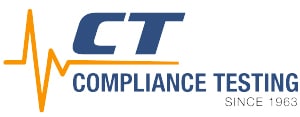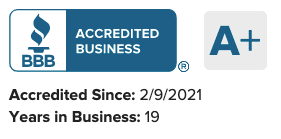Get Free Help From Our Engineers With FCC Compliance
Need help complying with FCC Part 15 or other standards? We work with businesses and individuals across the country, including in , to achieve compliance with Part 15 and other FCC regulations.
Click the “Talk to Our Team” button or call us on 866-540-5287 to ask our engineers your question about FCC testing and compliance, or request a free quote for testing and achieving FCC authorization for your device.

If you’ve taken a close look at any of the appliances inside your home, you may have seen the same symbol on many of them — an “FCC” logo, consisting of a capital “F” with a small “C” in a larger “C.”
This symbol indicates that the device is FCC compliant, meaning it complies with the Federal Communications Commission’s rules and regulations for radio frequency (RF) emissions and electromagnetic interference (EMI).
Devices need to comply with FCC regulations in order to go on sale, and also to be safe to use inside your home. FCC compliance ensures that a device has passed strict tests to provide it’s compatible with other electronic/digital devices in your home.
If you’re currently manufacturing a product and want to make sure it’s FCC compliant, you can contact our team online or call us on 866-540-5287 for free advice and assistance.
You can also learn more about what FCC compliant means, as well as the process for making an electronic device compliant with FCC regulations, below.
What Does FCC Compliant Mean?
An FCC compliant device is any electronic/digital device that follows the rules and regulations set forth by the FCC. The Federal Communications Commission (FCC) governs a large variety of radio communications devices, as well as electrical devices that may interfere with them.
All electronic devices can produce electromagnetic interference, which can affect the operation of other devices. FCC regulations are designed to make sure devices sold in the United States only produce a limited amount of EMI and RF emissions suitable for home or business use.
The Responsibilities of the FCC
The FCC regulates communications within the United States and its overseas territories. The services governed by the FCC include radio, television, satellite and cable.
The FCC works to foster investment and competition within these sectors, while also managing regulations aimed at ensuring the efficacy of communications equipment around the country.
Congress oversees the FCC, but it’s an independent agency that acts as the leading source of guidance on electronic and technological concerns.
If you’re not totally familiar with the world of electronic theory and radio frequency, it may seem strange that regulations are necessary. However, the FCC plays a critical role in managing the communications landscape.
Why Achieving FCC Compliance is Important
As an electronic and/or digital device manufacturer, it’s essential that any devices you market in the US are compliant with FCC regulations for electromagnetic interference and radio frequency energy radiation.
Selling a device that fails to comply with regulations could potentially result in financial penalties for your business, enforcement actions and other legal restrictions, including the removal of your product from the market.
At a consumer level, widespread compliance with FCC regulations helps to make sure all of the devices we use on a daily basis keep on working properly.
If a large number of people started to use devices that didn’t properly adhere to the FCC rules, harmful interference could interfere with other important equipment. This can have disastrous for many systems we rely on, including:
- Airplane navigation aids
- Radio and TV equipment
- Mobile phones
- Medical devices
As an example of the importance of FCC compliance, someone with an unregulated device with unsafe EMI levels could jeopardize the lives of everyone who’s on a plane. In a world where our lives are highly dependent on technology, FCC compliance helps keep us all safe every day.
On a more mundane level, excessive levels of household EMI could interfere with your phone, your internet connection, or your TV signal.
How to Achieve FCC Compliance for Your Product
The FCC regulates electronic devices under FCC Part 15, a rule that defines clear limits for the amounts of radio frequency emissions and electromagnetic interference produced by devices.
Electronic devices are classified as intentional, unintentional, and incidental radiators, and each type of radiator is subject to specific requirements.
You can make sure your product is FCC compliant by working with an FCC testing lab to identify the type of radiator it’s classified as under regulations, then perform tests to ensure it meets the FCC’s standards for safe and appropriate RF emissions and EMI.
As an accredited testing lab, we’ve helped hundreds of manufacturers achieve FCC compliance for their products. You can learn more about FCC testing, compliance and certification by talking to our team.
You can also read more about the steps involved in achieving compliance in our full guide to the FCC compliance process.
Contact Our Expert Compliance Testing Team
We offer fast, efficient compliance testing for manufacturers aiming to comply with FCC and CE regulations. Working with our experienced testing team allows you to get your products onto the market quickly and ensure you’re fully compliant.
To discuss the testing and FCC compliance process, feel free to contact our team online or call us on 866-540-5287.
Request a Free Quote From Our Team
Please enter your name, contact information, and any information about your device and the type of testing you need into the form below. Our team of engineers and compliance specialists will contact you as soon as possible with a free quote for your project.




